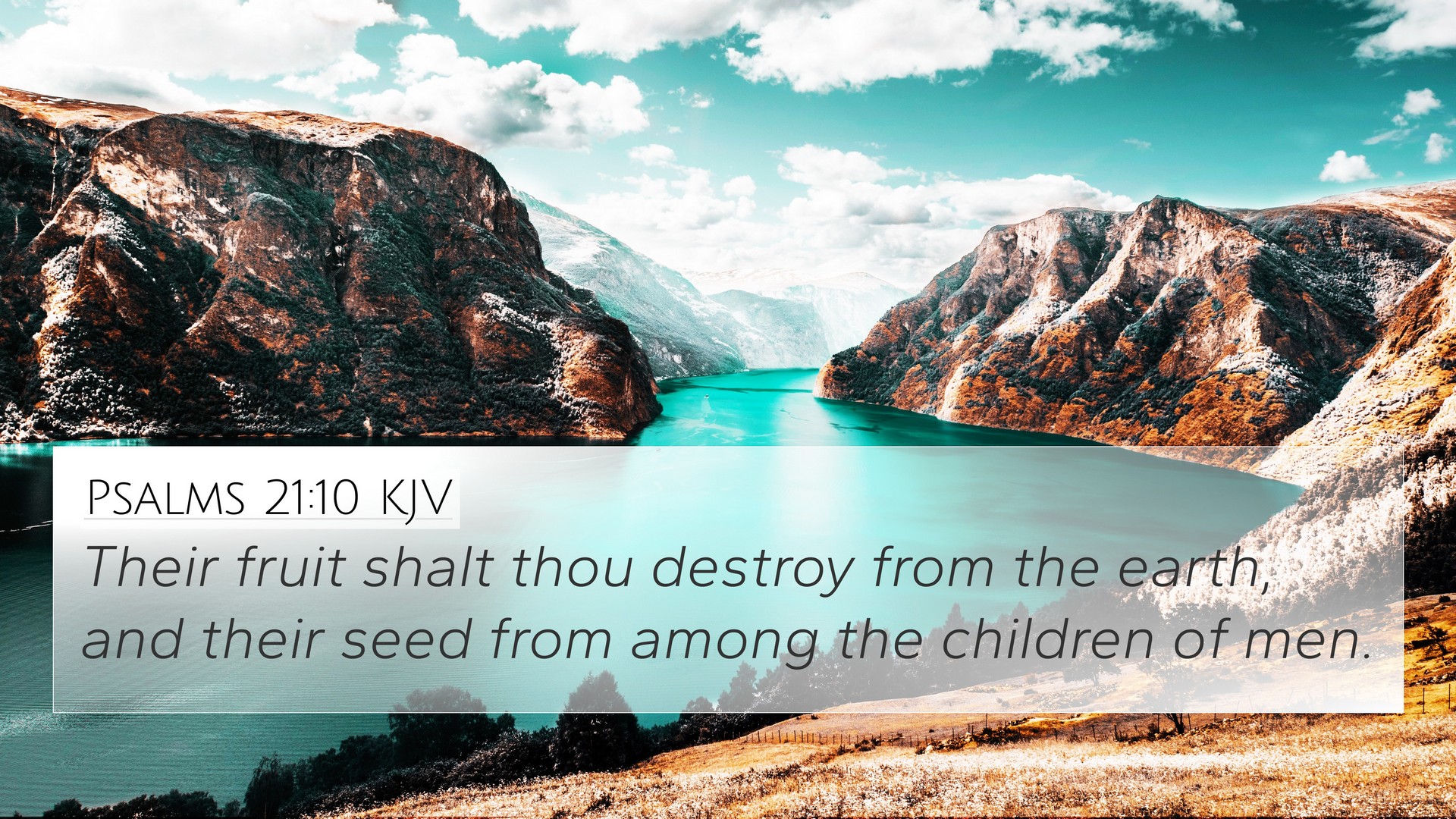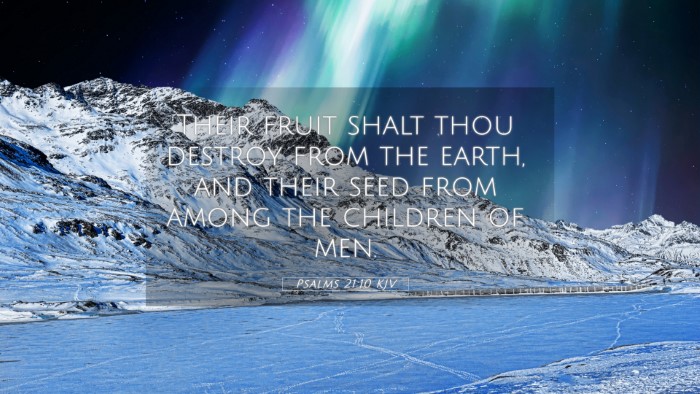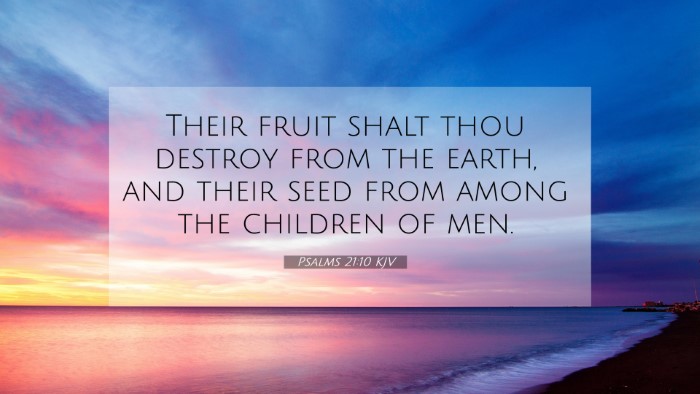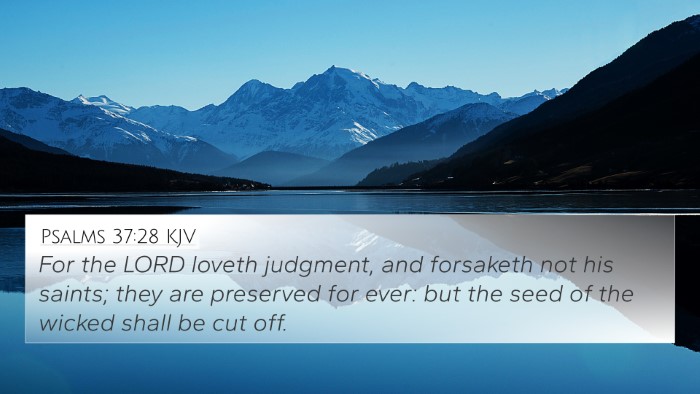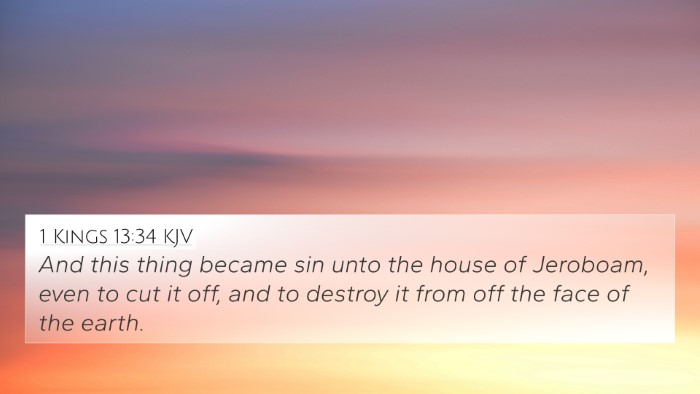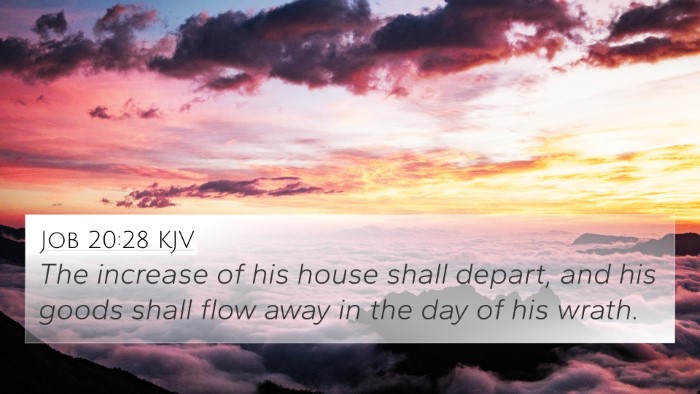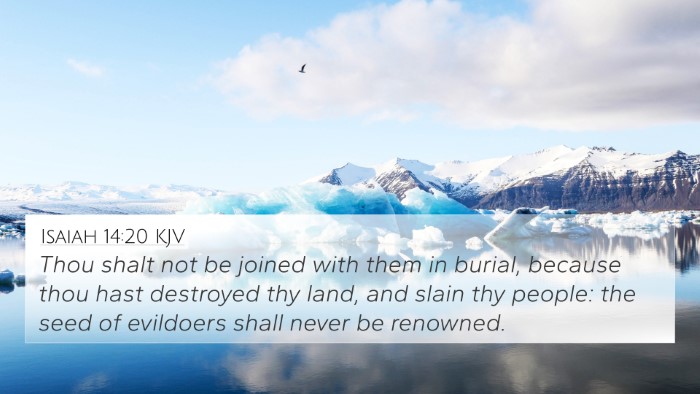Psalms 21:10 - Summary and Interpretation
Bible Verse: Psalms 21:10
Verse Context: This verse discusses the fate of the enemy, emphasizing God's justice and the consequences of opposition to Him and His anointed.
Combined Insights from Public Domain Commentaries
Matthew Henry's Commentary:
- God’s Sovereignty: Matthew Henry emphasizes that the consequences faced by the enemies of God are a demonstration of His sovereignty and power. It reminds the faithful that God will ultimately deal justly with those who oppose His will.
- The Role of Kings and Authority: The verse highlights the fact that rulers, as God's anointed, are upheld by divine will, and their enemies will face inevitable downfall.
Albert Barnes' Notes:
- Metaphorical Language: Barnes points out that the verse employs metaphorical language to convey the idea of destruction as a natural consequence of sin and rebellion against God.
- Connection to National Identity: This verse can be related to the national identity of Israel, where the king represents the people and their collective relationship with God.
Adam Clarke's Commentary:
- The Nature of Justice: Clarke interprets this verse through the lens of divine justice, noting that while the wicked may prosper temporarily, their fate is ultimately sealed by God’s righteous judgment.
- Encouragement for Believers: The message serves as a comfort for those suffering persecution, reminding them of God's protection and righteous judgment.
Related Bible Cross-References
- Psalm 37:9-10: "For evildoers shall be cut off; but those that wait upon the Lord, they shall inherit the earth." - Highlights the contrast between the fate of the wicked and the righteous.
- Psalm 92:7: "When the wicked spring as the grass, and when all the workers of iniquity do flourish; it is that they shall be destroyed forever." - Echoes the temporary success of the wicked.
- Proverbs 11:21: "Though hand join in hand, the wicked shall not be unpunished: but the seed of the righteous shall be delivered." - Affirms that justice shall prevail against the wicked.
- Isaiah 54:17: "No weapon that is formed against thee shall prosper; and every tongue that shall rise against thee in judgment thou shalt condemn." - Encouragement that God's protection rests on the faithful.
- Zechariah 1:3: "Therefore say thou unto them, Thus saith the Lord of hosts; Turn ye unto me, saith the Lord of hosts, and I will turn unto you, saith the Lord of hosts." - Calls for repentance and the turning away from evil.
- Matthew 5:10: "Blessed are they which are persecuted for righteousness' sake: for theirs is the kingdom of heaven." - Highlights the blessed state of those who suffer for doing right.
- Romans 12:19: "Dearly beloved, avenge not yourselves, but rather give place unto wrath: for it is written, Vengeance is mine; I will repay, saith the Lord." - Trusting God’s justice in the face of opposition.
- Revelation 20:10: "And the devil that deceived them was cast into the lake of fire and brimstone." - Ultimately, this indicates the final judgment of evil.
- 2 Thessalonians 1:6: "Seeing it is a righteous thing with God to recompense tribulation to them that trouble you." - Affirmation of God’s justice against oppressors.
- 1 Peter 3:12: "For the eyes of the Lord are over the righteous, and his ears are open unto their prayers: but the face of the Lord is against them that do evil." - Reinforces the protection of the righteous and the judgment on the wicked.
Thematic Connections
The themes derived from Psalms 21:10 relate to God's justice, protection of the righteous, and the assured downfall of the wicked. Each related verse contributes to a deeper understanding of God's character and His dealings with humanity.
This verse and its connections provide a foundation for a comprehensive Bible study, demonstrating how to utilize cross-referencing tools in exploring these themes across different books of the Bible.
